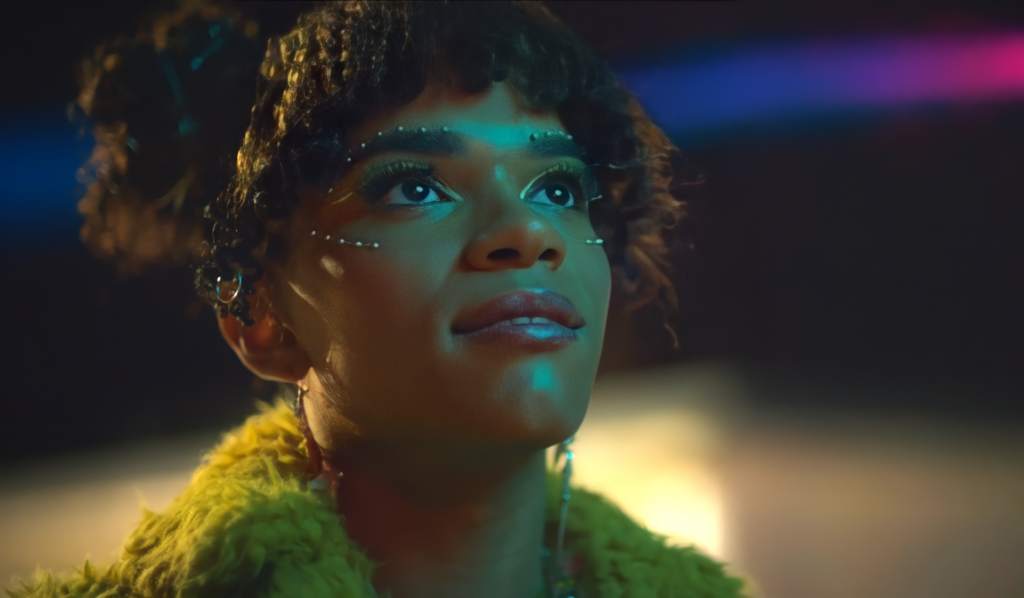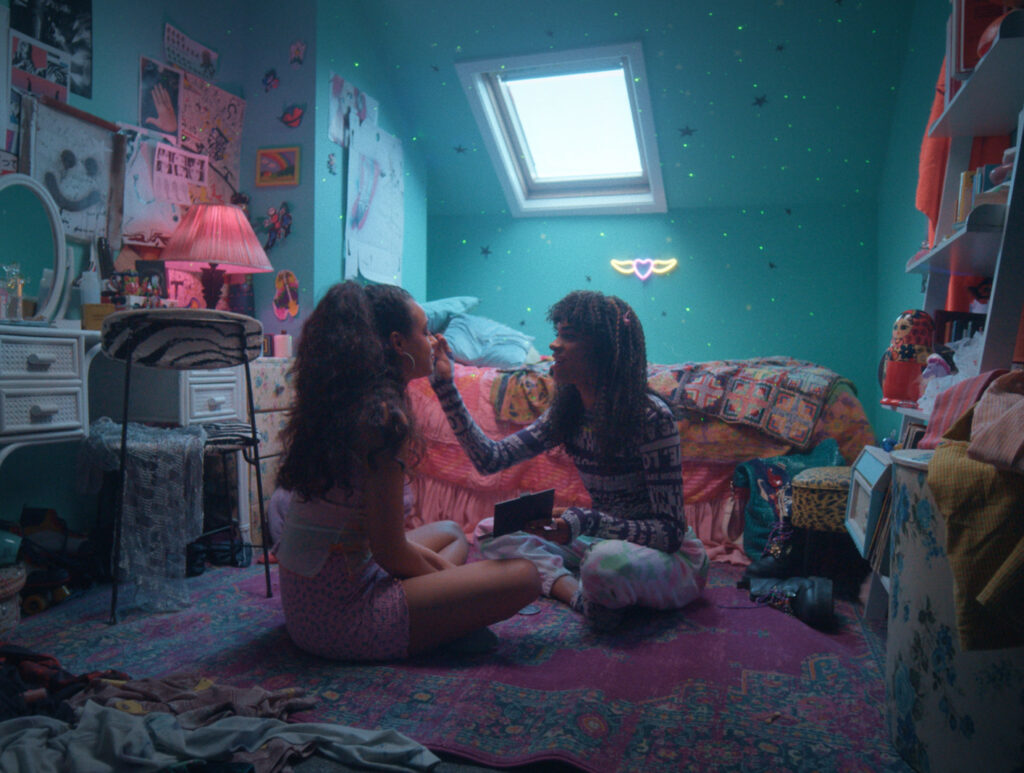‘MARS’ review: Yasmin Finney shines in Yungblud’s tale of trans self-acceptance
Yungblud short film MARS is an uplifting and timely short film that shoots for the stars.

For the young trans teenager at the centre of director Abel Rubinstein’s short film, venturing into an alternative reality where the earthly rules of human society are no longer viable presents the adventure of a lifetime. Sci-fi melds with coming-of-age in MARS and Heartstopper’s Yasmin Finney steers this ship alongside not only a glowing visual spectacle but an uplifting and timely portrayal of trans youth.
Premiering at the London Film Festival, MARS taps into otherworldly themes to tell a grounded story of trans youth grounded with authentic portrayals and lived-in performances. The 20-minute short is based on British musician Yungblud’s song of the same name, from his second studio album, which charts the struggle of a 17-year-old transgender girl who isn’t accepted by her parents. The song itself was inspired by a fan Yungblud met while on tour and, subsequently, the film tackles the importance of collective community for LGBTQ+ youth.
MARS captures the apprehensive but thrilling existence of Charlie as she learns to spread her wings and live her truth. Finney is marvellous as Charlie Acaster, a headstrong girl in Blackpool who is the North Star of this film, slowly bringing the emotional nuance of this character to the forefront with an upfront vulnerability that sees her flourish in a leading role. Orbiting Charlie is best friend Maisie (Leah Choudhry) who offers an equally tender perspective on young womanhood. The pair are introduced in a teen girls’ bedroom, posters plastered over the walls and make-up tools strewn across the carpeted floor as Charlie delicately applies Maisie’s eyeshadow.
Cross-legged and giggly, the pair gossip about boys they have their eyes on and their plans for the evening: Maisie is off to a party and Charlie is visiting her Nan for dinner, or so she says. In actual fact, Charlie secretly attends a trans and non-binary youth support group led by the benevolent but frank Pete (Pete MacHale). The latter guides confessions of teenagehood into productive and meaningful self-reflection but Charlie isn’t yet ready to tell her bestie about that.
While Rubinstein’s camera surveys the circle of teenagers attending the meetings with empathy, Charlie’s perspective sees the meeting morph into an overwhelming experience. Isolated in a shot of her own, she is smothered by the outpouring of negativity from family responses to GP hormone appointments to a school’s gendered divisions. She zones out like she’s floating off into another solar system and “lost amongst the stars” before plummeting back to Earth when Pete’s questioning meets her cold, distant rebuttals. Charlie’s teenage rebellion materialises as she pushes against those who have her best interests at heart. There’s a specificity to this nuance of self-acceptance: it cannot be rushed but found in one’s self with an amalgamation of time and setting blanketed by love.

Offscreen, MARS also honours its front-of-camera representation. With a creative team, cast and crew, representing the communities whose stories are being told, there is a clear emotional understanding of the tone MARS sets out to achieve. The film is uplifting but not naive as it acknowledges the UK’s current demonisation of trans folk without excluding trans joy. “Phobics, they’re going to try and make you feel like it’s something to be ashamed of. It’s not… There is joy, there’s so much f***ing joy, but not if you are too embarrassed to go looking for it,” Pete offers as a remedy to Charlie’s dealing with shame.
MARS ventures to some intriguing places thematically. The conceptual implications of space travel imbue the film’s sci-fi fantasy elements with coded meaning. Feelings of alienation are realised as Charlie wanders the streets in a full astronaut space suit as well as an instrumental soundtrack abound with synths as she ventures into the unknown of her future. The astronaut metaphor in MARS is twofold: it marks Charlie’s isolation in the cosmos, she feels alone floating amongst the darkness of space, but elsewhere the intergalactic visuals present fantastical escapism where Charlie is a pioneering adventurer on a captivating journey. The playful cinematography transports these characters into different dimensions; Charlie and Maisie explore an arcade as if it is a new planet and the pair giddily play slot machines and slurp neon slushies until their tongues are fluorescent blue.
The chilly seaside nights are as visceral as the arcade’s bright neons and the wide grins of two young women making teenage memories. Charlie is a voyager in a world that may still struggle to accept her, but with a group of caring teens and supportive allies, she’s carving her own space in the universe. Youthful exuberance, mischief and youthful buoyancy underscore MARS as the film shoots for its own personalised constellation of stars.
Rating: 4/5
The digital world premiere of MARS, including an introduction by Yungblud and Yasmin Finney, will be hosted on Moment on Thursday 17 November 2022 – you can find out more and get tickets here.
